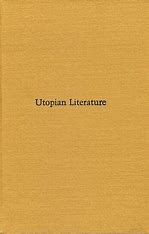 THE MILLTILLIONAIRE (1895) – This novel was written by American author Albert Waldo Howard under the pen name M. Auburre Hovorre. A second edition came out in 1898.
THE MILLTILLIONAIRE (1895) – This novel was written by American author Albert Waldo Howard under the pen name M. Auburre Hovorre. A second edition came out in 1898.
The concepts and storyline are all over the place in this minor utopian work from the 1890s. Howard often treats mutually exclusive concepts as if they are interchangeable. He does do a deep dive into the advanced technology of the future as well as the political changes, so that is a positive factor.

BALLADEER’S BLOG
At some point in the far future, the entire Earth is under one government – the Bardic State. Howard seems at times to be using the reference to bards as if they are his version of Plato’s Philosopher Kings, and at other times as if the term means simply “rulers.”
A twenty-six-member council called the Alphabets seem to fill a parliamentary role. Sometimes. It’s that kind of book. Half the twenty-six must be male and the other half female. They each hold the title Bard.
A Bard Regent handles many administrative tasks for the figure above them – the “True Bard” or the “Positive Poet.” The wealthiest person in the world – our title Milltillionaire – is above the Bard Regent and serves as the True Bard.
Adding to the confusion is the fact that the narration tells us there is no money, so how one becomes wealthy in such a world is beyond me. This novel presents another of the many 19th Century fictional utopias that are based on socialism.
Everyone receives food and shelter from the government and in exchange they must work where, when and how the authorities above them order. There is no taxation. (I would imagine so, if there’s no system of currency.)
Another puzzling aspect of this future society is that we’re told there is “no crime.” Thus, The Milltillionaire features the same weakness as so many other utopian works of ancient science fiction. At some point the reader is figuratively asked to “just trust me, bro” about the concepts laid forth.
There are twenty megalopolises in the world, each of them circular with a radius of one hundred miles and a population around a quadrillion. All land outside of the megalopolises has been given over to gardens and parks.
No official religions have survived, with just a vague exhortation to “love others” replacing them. And speaking of love, there are no marriages. Free Love rules, with no limits on the number or kinds of sex partners one may pursue. However, when a child is born both the designated mother and father are required to support it until it, too, enters the work force/ society.
Everyone is assigned a serial number, is a vegetarian and must go to a university. After graduation, a citizen is given a three-year break, then must pursue four years of post-graduate work. After death, cremation is required.
Science has nearly eliminated disease, telepathic abilities have been brought out in everyone and – in an absurd hint at tyranny which Howard just kind of glosses over – the “psycho-omni-magnetic force”, which is even stronger than hypnotism, is wielded by “experts” to control large numbers of other peoples’ minds.
The harnessing of magnetic forces has replaced the use of steam and electricity. There are superhighways of three levels – two for magno-electrical vehicles and one for pedestrians and bicyclists. Above the highways are platforms for sun-bathers.
Science has been able to completely master temperatures, both climatic and for industrial & construction purposes like melting down steel and minerals, etc. Fires are extinguished by “freezing” the burning objects.
Anti-gravity and interplanetary travel are possible in this future world. Jupiter is inhabited by humanoids larger than Earth people but less scientifically advanced. These aliens communicate telepathically … and never wear clothing. (Nudists of Jupiter!)
As the above should make clear, The Milltillionaire is unfocused and doesn’t present a consistent point of view. It’s not as boring as a lot of other utopian novels from the 1800s but I don’t imagine it would appeal to general readers. It’s mostly for people like me who love reading every work of “ancient” science fiction that they can.
FOR MORE “ANCIENT” SCIENCE FICTION CLICK HERE.

Very difficult, futuristic novels. Not that I’ve ever even started one, though I have booted story lines from one side of my skull to the other more times than I care to number. To put forward different ways things are done, how philosophy has evolved [devolved] with continuity and some sort of logic on the one hand while coaching readers along with things they can relate to or imagine parallels is outside my pay grade. Still, a good read here. Thanks.
Thanks for commenting! I agree that is a very tough type of story to do well.